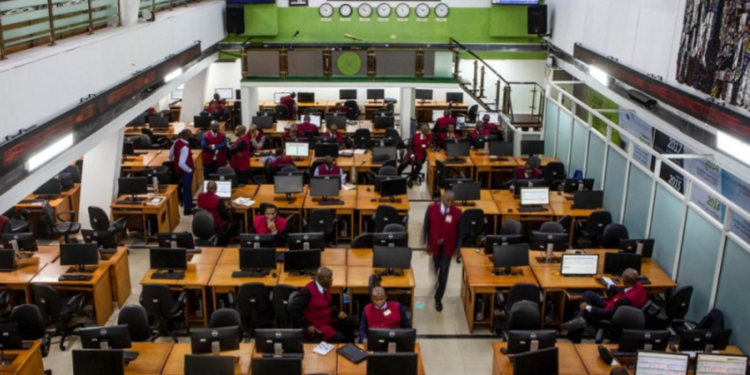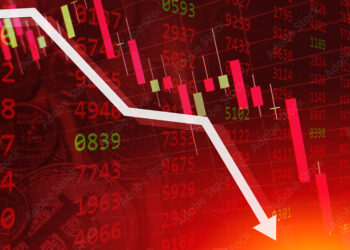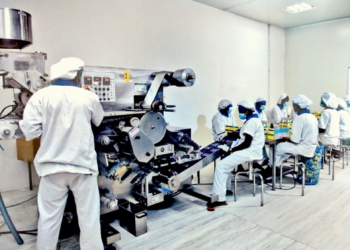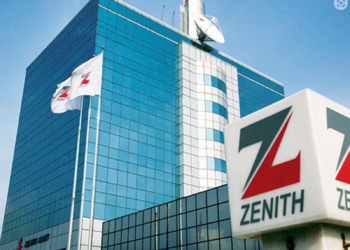Equities trading on the Nigerian Exchange Limited (NGX) ended November on an upbeat note, buoyed by a surge in investor confidence toward listed corporations.
Investors seemed to be placing substantial bets on the renewed hope agenda, although a portion of the gains can also be traced back to internal shareholder dynamics.
A notable highlight was the listing of 4 billion ordinary shares of Mecure Industries Limited, a pharmaceutical and nutraceutical manufacturing company, at N2.96 per share on the NGX growth board.
This addition pumped N11.84 billion into the Exchange’s market capitalisation, injecting fresh liquidity into the Nigerian capital market and opening new avenues for wealth generation.
This wave of optimism was reflected in the buying patterns, driving the All-Share Index to conclude November at 71,365.25 index points. This marks a robust 3.08% increase from the previous month.
The year-to-date (YTD) return of the NGX All-Share Index now stands at an impressive 39.25%.
Despite ongoing concerns about escalating inflation, interest rate hikes, volatile exchange rates, and the potential impacts of the 2023 general elections, investor confidence has remained resilient. This has led to heightened buying activity in the market.
All-Share Index crosses 70,000 points for the first time
Equity trading on the Nigerian Exchange Limited (NGX) had closed trading on Wednesday, November 1st, 2023, in the green territory as the NGX All-Share Index appreciated by 1.94% to cross 70,000 index points.
The development was unprecedented in the history of the Exchange being the first time the Exchange will achieve the feat.
The market positive sentiment among investors is being attributed to several factors, including favourable policies introduced by President Bola Tinubu’s administration such as the removal of fuel subsidies, streamlining of exchange rates, the floating of the naira and investors strategically positioned themselves and taking advantage of the recent record earnings posted by quoted firms.
Market performance
Available statistics to the Nairametrics showed that the All-Share Index, which is the broad index that measures the performance of Nigerian stocks, opened the trading month at 69.236.19 index points at the beginning of trading on November 1, 2023, and closed at 71.365.25 points at the end the month on November 30, gaining 2,129 basis points or 3.08%.
Further analysis revealed that activities on the Nigerian Exchange Limited (NGX) which opened the trading month at N38.038 trillion in market capitalization at the beginning of trading, closed the month at N39.051 trillion, hence has earned a month-to-date gain of about N1.013 trillion.
What the market analysts are saying
Mr. David Adonri, Executive Vice Chairman, of Hicap Securities Limited in a chat with Nairametrics said that investors were in the earning season and that what investors will get from dividends is one of the factors that drove the demand for shares in the market during the period.
He noted that the equities market is defying current political uncertainties because investors are futuristic that the prospect for a yield environment is bright.
- “Most companies, especially banks, released their half-year results during the quarter. The market normally sustains positive sentiment during the earning season.
- However, the season was within the period when election cases are still being determined in the courts, but I think the craving for dividends overshadowed what would have been the impact of the elections,” he said.
The Managing Director, of Arthur Steven Asset Management Limited, Mr. Olatunde Amolegbe in a chat with Nairametrics said that a Demographic shift has happened in the NGX in the last few years.
- “We now have more local institutions and retail investors in the market than foreign portfolio investors. The reverse used to be the case, this shift has naturally reduced volatility in stock prices as the locals are likely to have more faith in the local market than foreigners. That’s why you see the NGX ASI continuing to rise despite all the uncertainties in the environment.”
Amolegbe further said that the expectation that the policies will encourage the inflow of foreign investment is the primary trigger that is causing the stock market rally.
- “The second trigger will include the fact that some of these policies will lead to a short-term increase in inflation level and typically stock prices tend to rise along with inflation,” he said.
- He explained that the other driver might also be the fact that we are moving toward the end of the first half of the year, and this normally leads to portfolio rebalancing by fund and asset managers,
- “They rebalance their portfolio every quarter and every half year and this normally results in the stock rally,” he said.
























